The PC Turns 30, Is It Over The Hill?
The IBM PC was introduced 30 years ago. Has its time passed?
It was thirty years ago that IBM introduced the first true mass-market personal computer:
On August 12, 1981, IBM introduced its first personal computer known as the IBM PC. I remember it well because I wrote the EasyWriter manual to accompany the word processing program that IBM sold along with that original PC. I first saw the PC in April, 1981 after being hired as the “Director of Publications” at Information Unlimited Software, a small software firm in Kensington, California that IBM contracted to port the software from the Apple II to its as-yet-unannounced PC. I left the software company and became editor of PC Magazine during its first year of operation.
The PC wasn’t the first personal computer. Apple was doing well with its Apple II and Radio Shack was on its second generation of PCs by the time “Big Blue” entered the market. There were also several PC makers in the business end of the market with machines that ran the CP/M operating system.
But it wasn’t until IBM joined in that businesses and even most consumers started taking personal computing seriously. Up until that time, personal computers were mostly for hobbyists and those willing to live on the “bleeding edge” of technology.
The first PC came standard with 16 kilobytes (KB) of memory at a bare-bones price of $1,265 without a monitor or a diskette drive. A full-blown system with 64K of memory, two floppy drives, a display/printer adapter card and a monochrome screen cost $3,735 in 1981 dollars. Adjusting for inflation, that’s $9,275 today. IBM’s dot matrix printer and its required cable added another $610 to the price tag for a grand total of $4,345. In November of 1981, I wrote an article for PC Magazine called “PC on a Budget” where I wrote about how to assemble your own PC for “only” $3,399.
By contrast, I am currently writing this post on a laptop with a dual core 2.4ghz processor, 2GB of internal memory, a 640GB hard drive, 32x read/write CD/DVD-ROM, Wireless and Bluetooth connections, a webcam, and more places to plug things in than I can figure out what to do with sometimes. The desktop at home is even more powerful. Heck, even my phone has a dual core 1ghz processor, 16gb of on-board memory, and two cameras. And all three were cheaper than even the least expensive version of the 5150. I don’t have an iPad or other tablet but, if I did, the same would be true.
In short, the advances in the computer world over the past 30 years have been simply amazing, to the point where one wonders if we really need that big tower and screen anymore:
The days of the personal computer are numbered, a leading IBM designer has claimed. Dr Mark Dean, who worked on the original IBM PC, the 5150, wrote in a blog post commemorating its 30th anniversary, that “they’re going the way of the vacuum tube, typewriter, vinyl records, CRT and incandescent light bulbs”.
Dr Dean argued that PCs had created the environment for a new generation of devices, ranging across different form factors and uses. You only have to compare the 5150 with a top smartphone of today to see what he means.
Three decades of creativity has led, he claimed, to an environment in which technology allowed new ideas to flourish, without individual items being a barrier to between users and what they want to do.
He wrote that “PCs are being replaced at the center of computing not by another type of device – though there’s plenty of excitement about smart phones and tablets – but by new ideas about the role that computing can play in progress. These days, it’s becoming clear that innovation flourishes best not on devices but in the social spaces between them, where people and ideas meet and interact. It is there that computing can have the most powerful impact on economy, society and people’s lives.”
“While PCs will continue to be much-used devices, they’re no longer at the leading edge of computing,” he said.
It’s hard to argue with Dean’s conclusion here. When the PC first came out, the advances in computer technology took place almost exclusively in the world of personal computers. Partly, I would argue, this was because IBM had chosen early on to license its technology to other developers so that one could have an “IBM PC” without actually buying it from IBM. One pleasant effect of this decision was that PC developers, some of which don’t even exist anymore, competed with each other to add new features to their PC’s, while Intel helped the process along by developing faster and more powerful processors in a continual process that seems to establish that Moore’s Law is a never-ending process.There will advances in the Apple world as well, of course, but the fact that Apple kept the production of Apple-type machines to itself meant that, for a time, it stayed at the edge of the PC market while IBM, Intel, and Microsoft continually pushed technology forward in an effort to give “new” things to consumers.
That’s not so much the case anymore. Yes, processor development continues apace, computers continue to get faster, a d hard drives continue to expand to the point where having a 2 terabyte drive in your machine no longer seems very odd. The real developments now, though, are taking place in the mobile computing world. Led by Apple, but with other developers keeping pace, smartphones and tablets are where the exciting stuff is happening in technology right now, and people are finding the idea of being able to access the internet from a device that sits in the palm of their hand or rests in their lap to be a regular part of daily life.
That doesn’t mean PC’s will go away, of course. They’ll still play a huge role in the business world for the foreseeable future, and in education as well. But for the average person looking for a computer that hooks them up to the Internet, lets them use word processing and other personal productivity software, and doesn’t cost too much, a laptop is just fine. In a few years, some version of what we now call tablets may fulfill that world. Meanwhile, PC’s will continue to be used by people who want something more powerful out of a computer, or who are into intense gaming or video editing. The days of the PC being the center of the computing world for the average household, though, seems to be fading.
It’s been a good 30 years, though, hasn’t it?
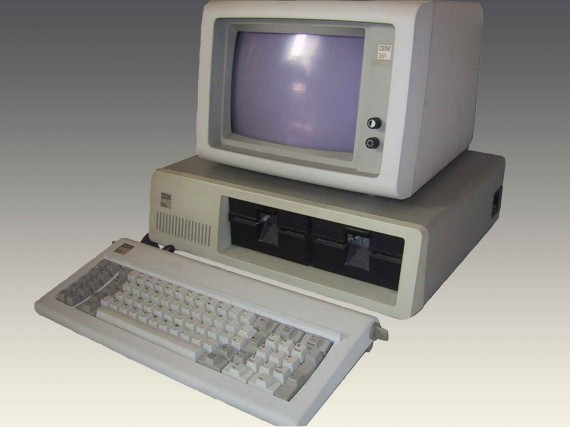

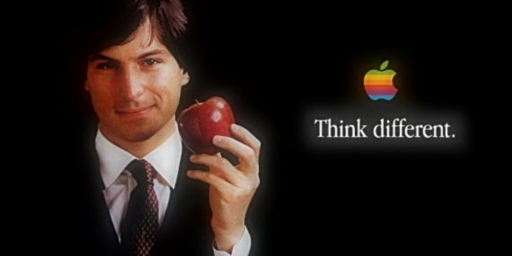
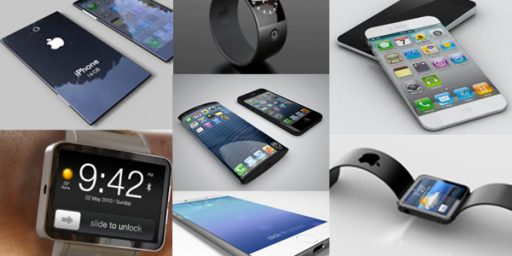

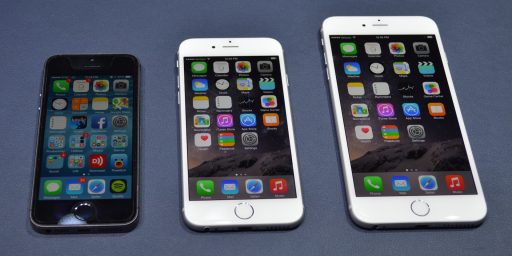
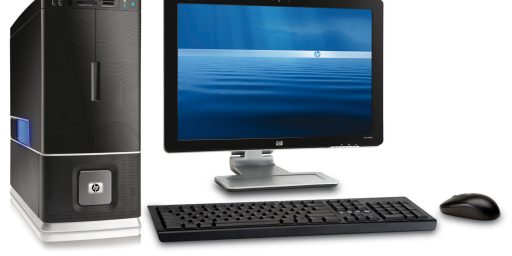
One of the first PCs 7 years earlier.
You probably don’t need a PC anymore… unless you’re into gaming.
Mark Weiser coined the phrase “ubiquitous computing” around 1988 …
It’s been a long time coming, though the phones and now the tabs are getting us there. Maybe in another 10 years tabs will be laying around waiting rooms for people to just pick up and use.
(The PC, reconceived as “workstation” will survive though.)
No.
I booted a copy of MS-DOS 1.1 in honor of the day. The PC pictured is a wee bit out of date, but not extinct. I recently witnessed an IBM AT still in use processing real-time stock quotes using Lotus 1-2-3 macros. If it ain’t broke…
Waiting for the tablet/HTML 5 market to solidify. This will bring harmony to the fractured app market. Costs a lot to develop apps for multiple platforms, esp. when they evolve faster than ever.
My ideal computer is the one were we simply have sporty sunglasses etch images onto the retina, with wireless acceleration detectors suspended in a clear nail polish acting as the tactile input. Then will we effectively sear the protein with propane.
I’m with ponce on this one. Very much the same arguments have been made against the PC virtually since the minute it hit the market. What good is it? Aren’t there better solutions? Who would want all that power on their desks.
In the U. S. the desktop computer market is mature which means that as a general proposition everybody who can be sold one already has one. In a mature market “growth” occurs mainly either by wresting new name customers from competitors, i.e. a PC user becomes a Mac user.
Just because a market is mature doesn’t mean that you can’t make money in it, only that the Wild West frontier days are over. And the advent of additional computing alternatives, e.g. smartphones, tablets, doesn’t make the desktop computer any less useful. There are still reasons to have lots of power on your desktop and I don’t believe that the entire marketplace will give that up any time soon.
You know what’s sad, Doug? That laptop you mentioned, that is so far ahead of the IBM PC that it’s practically light speed, is well below spec in 2011.
As for the place of the PC, it will have its place. Workstations will still exist. Powerful programs will still need a PC’s hardware. Gamers will absolutely need them, because there will still be a market for AAA titles. I think the death of the PC is greatly exaggerated.
It’s kind of a mistake to think of “PC” as “Desktop” in the first place. That was just the form factor the thing fit in, to begin with. A modern smart phone is much more “personal computer” if you back up a bit and think about it. If Apple could have built it then, they would have. It took a few tries, Pilots, Newtons, and so on before we got to iPhone.
Yes, workstations will remain, but phones and tablets will gain eyeball share for some time to come.
The primary purpose for a desktop PC is performance. A laptop simply doesn’t have the same capability to dissipate heat, so the components are designed to scale down in power output when heat rises to a level which might damage the hardware. If someone figures out how to do liquid cooling in a one inch thick laptop, then you’ll see the desktop disappear.
Desktop PCs always offered as much performance as they could at a price the market found acceptable. There were failures. The Corvus Concept and the Apple Lisa came in with too much performance (and price).
It’s kind of interesting that we can configure “personal supercomputers” now for under $10K. That is what I used to spend (inflation adjusted) for plain old PCs. Of course, I don’t really have need for one. And my coolest apps are now on my phone.
I don’t think I’ve used a desk-top in 10 years and I am more or less constantly connected. I tend to do my work on my deck or in the yard or in a coffee shop. I don’t have a desk or an office — all of that lives inside my laptop.
I started approx 38 years ago on the Univac 9300 mainframe computer. It took up half a room and cost the university $2 million dollars.
Now days that same power & speed sits on everyone desk for under a $1K.
It has been an amazing evolution of computing power and productivity presented to the masses.
Is the PC over the hill? No, I think that is an exaggeration because businesses primary need a good size screen, and applications that can get the job done. Laptops, Smartphones & iPads are todays extensions that enable businesses to stay in touch when we are away from the office environment. In other words it is the “mobile technology” revolution – smaller, faster communications but still not replacing the PC’s at least not in the office.
I’m old and I like my desktop although most of it is under my desk. I like the big screen and the fact that it’s got three fans to keep it cool. I also read physical books and don’t own a Kindle.
What concerns me more than the change in formfactor is the growing erosion of the end-user’s ability to have absolute control over the technology they own. Apple is most famous for this right now, but you don’t have “root” superuser access even on Android phones by default.
As these devices become the primary way people compute, Bad Things® are going to happen unless some measure is taken to preserve the absolute autonomy of use of the things we buy to manage our lives.
Or an engineer. Or do large scale software/firmware development. Or GIS or AutoCAD. A lot of professionals do much of their overtime work at home now rather than staying at the office, and you need the resources of a desktop to do this kind of work – and currently PC’s are the best option (Mac has neither the open architecture nor the available software for this kind of work), either with Windows (which is actually stable when used by professionals, its problems come because its a lousy system for non-technical users) or preferably (personal opinion), one of the Linux flavors.
Related:
@Ben Wolf:
Most users, particularly in the consumer market, don’t need all that much performance. Again, if you’re a gamer, you need the sort of powerful processor and graphics you only get in a dektop right now. But for the average user who just surfs the web, checks email, occasionally does some light word processing, etc. a decent laptop proveds plenty of power.
@george:
I was speaking more to the consumer market. In the business world, desktops will be around for a long time if for nothing else that they’re more comfortable to type at for an extended amount of time.
It seems to me that everyone is agreed–that the change in format probably represents a reality in which CONSUMER HOUSEHOLDS never needed desktop PCs in the first place. They wanted the technology, so they had to take the format, too. Now they don’t.
If the PC is “dead,” it’s dead because the consumer market is the primary driver for technology purchases. I suspect that in the narrow world of Doug and OTB readers, such may be the case. In the real world, where markets almost always emerge out of the needs of the users of the products (hence “niche marketing”) desk tops will be likely to stay around. Will I be able to buy one at Best Buy 10 years from now? Probably not. On the other hand, a vinyl lp turntable that connected to the audio card in my PC didn’t exist last time I was in the states either–there was no market then but I just saw one on my last trip home. In fact I saw one from each of 10 manufacturers.
Gamers and businesses will ensure that the PC will still be readily available a decade from now; a better analogy than a vinyl record is a pick-up truck. Most people don’t need one and don’t want one, but they’re still easily available because for the people and businesses that need one there’s no substitution. Laptops and the like simply lack the power (read as heat dissipation and hardware flexibility) to fill that role, and that’s not going to change over the next decade – in fact, software requirements for high end usage is growing faster than hardware capabilities.
And as I said, many of us who work in such fields buy a work-capable system at home for our private use as well; I’ve several systems at home, one of which is a PC I built from components to meet my work needs, something that is impossible with laptops (and which outperforms the best laptops on the market by an order of magnitude). And that’s pretty much normal for engineers.
You are making a semantic argument, george. First that a purpose-built game machine is a “PC,” and then that a purpose-built workstation is a “PC.”
Neither is in the old sense a general purpose personal computer.
I still prefer a large keyboard and large, dual monitors. Hard to do on a notebook.